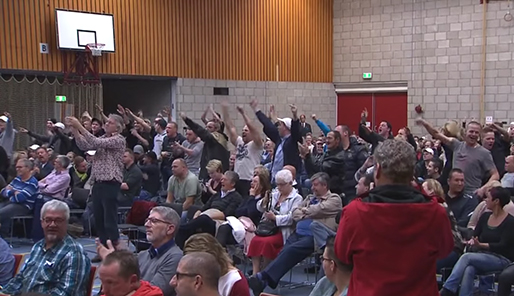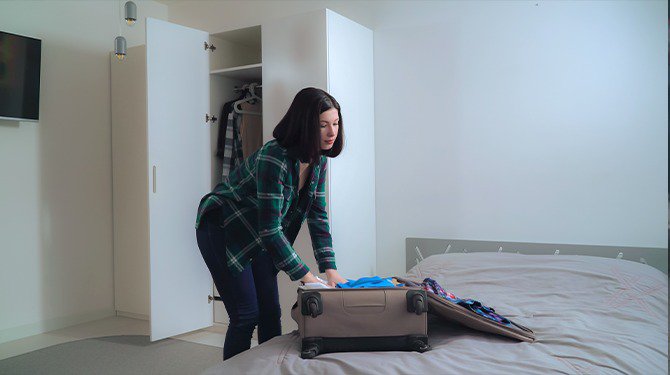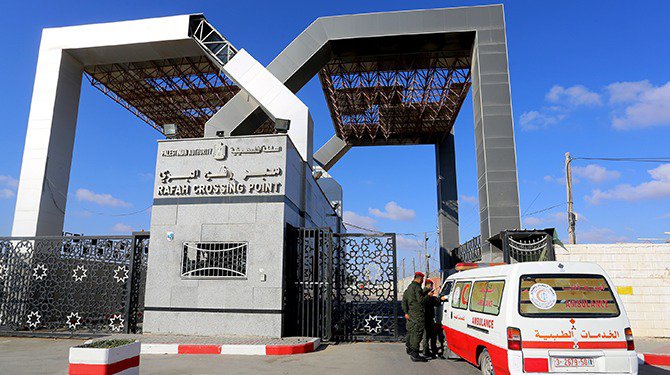Op steeds meer plaatsen in Nederland komen burgers in opstand tegen de inspraakavonden die de gemeentes organiseren. Inwoners vrezen dat de liedjes over piemels op die avonden leiden tot verloedering, criminaliteit en dalende huizenprijzen.
“Ik heb natuurlijk niets tegen echte inspraakzoekers, maar iedereen kan toch zien wat voor tokkies er op die gelegenheden afkomen,” zegt Mieke van Rijsselberge. Zij wil niet dat haar gemeente een podium biedt aan burgerinspraak. “Je mag het natuurlijk niet zeggen, maar de meeste mensen die op inspraakavonden afkomen doen dat echt niet omdat ze van hun burgerrechten gebruik willen maken. Die komen om over piemels te zingen.”
Vooral mensen met kinderen maken zich zorgen. Annemijn van Duin wil niet dat haar dochters aan inspraak worden blootgesteld: “Ik heb twee dochters. Ik moet er niet aan denken wat voor risico die gaan lopen als ze straks allemaal liedjes horen over piemels.”
Niet alle burgers zijn tegen inspraak. Piet Reedijk was bijvoorbeeld erg blij dat de gemeente Steenbergen hem de kans bood zijn zegje te doen: “Als burger in een democratie vind ik het niet meer dan redelijk dat je op inspraakavonden eindelijk eens de kans krijgt te zeggen dat daar een piemel in moet.”






From book https://www.routledge.com/…/Shorem…/p/book/9781138051591 Rewilding in the Netherlands
The key principles of rewilding are cores (species), carnivors (natural preditors) and corridors (so animals can migrate). One of the largest rewilding initiatives in Europe (http://www.rewildingeurope.com/tag/oostvaardersplassen/) included the Introduction of hundreds of non-native grazers to a 56 square kilometre area called Oostvaardersplassen, situated in the Flevopolder, a land reclaimed from Lake Ijssel (Vera 2009). Animals re-introduced to this territory, included bird species that had become very rare in the Netherlands, such as the Common Spoonbill, Eurasian Bittern, Marsh Harrier, Bearded Tit, as well as even rarer species that had disappeared from the Netherlands such as Greylag Goose, Great Cormorant, Great White Egret, White-tailed Eagle, and Sanderling, amongst others (Vera 2009). Aside from birds, smaller mammals like foxes and hares, as well as amphibians and reptiles established themselves in the area.
Perhaps, the most remarkable animals to be introduced were red deer, Heck cattle, and Konik horses, which are sometimes called Konik ponies (Vera 2009). Heck cattle are the result of a controversial Nazi breeding program in which modern aurochs were selectively bred with Spanish fighting bulls to resemble extinct European wild cattle called the aurochs, and resurrect the long-extinct breed (de Bruxelles 2009; Morris 2015; Izadi 2015). The ‘Nazi-bred-super-cows’, like their ancestors (Morris 2015), the aurochs, were said to be beasts ‘with shaggy, russet-tinged coat, powerful shoulders and lyre-shaped horns that could have stepped straight from a prehistoric cave painting’ (de Bruxelles 2009). In recent reports, farmers found the Heck cattle too aggressive to breed (Morris 2015; Izadi 2015).
Meanwhile, the Koniks, native to Poland, suffered drastic population declines in the nineteenth century, as they were unable to compete with the larger draught breeds of Western Europe (http://conpsychmeasures.com). The Konik and Heck cattle were eventually introduced to the Oostvaardersplassen because they have undergone very little, recent selective breeding and might therefore have many of the characteristics of their wild ancestors (Vera 2009).
[INSERT FIGURE 10.2, caption: Konik ponies, photo credit: Engelbert Fellinger]
The ecosystem of the area was designed to resemble those that would have existed on European river banks and deltas prior to human development (Monbiot 2013). In the words of Kolbert (2012):
The cattle grazed and multiplied. So did the red deer, which were trucked in from Scotland, and the horses, which were imported from Poland, and the foxes and the geese and the egrets. In fact, the large mammals reproduced so prolifically that they formed what could, with a certain amount of squinting, be said to resemble the great migratory herds of Africa; the German magazine Der Spiegel has called the Oostvaardersplassen “the Serengeti behind the dikes.” Visitors now pay up to forty-five dollars each to take safari-like tours of the park. These are especially popular in the fall, during rutting season.
The beautiful Dutch nature film De Nieuwe Wildernis (http://hollanddefilm.nl/de-nieuwe-wildernis) about life in Oostvaardersplassen won a ‘Rembrandt’, the Dutch equivalent of the Oscars in 2014, marking the first time that a feature documentary has been awarded the title of ‘Best Dutch Movie of the Year’. It also won an official selection prize at the Environmental Film Festival (http://www.thenewwilderness.com/).
However, despite its praise and popularity, Oostvaardersplassen has come under great scrutiny, for its capacity, or lack thereof, to maintain its large herbivore population. As the protected area has no connection to other land where the animals could migrate and does not include predators, the number of Konik and Heck cattle grazing during the growing season is determined by the number of animals that have survived the preceding winter (Vera 2009). This has necessitated ‘control’ or ‘management’. This management included animals being shot to prevent a slow death of starvation (NRC 2011; Het Parool 2011a; Nu 2015). Alternatively, another strategy was to leave the animals to die naturally. As reported by the Dutch newspapers, 1,093 animals died in the winter of 2009–2010 of starvation and 793 animals died in 2011 (e.g. Het Parool 2011b). At the time of writing this book, Staatsbosbeheer, the Dutch Forest Service, remained optimistic about harmonious and ‘natural life where nature has a say in it’ [Translated HK] (http://www.staatsbosbeheer.nl/oostvaardersplassen/). Yet, according to the Dutch Forest Service, 91 per cent of the deaths between 1 May and 30 April 2014 were animals that were shot, with 11 animals dying a ‘natural death’ of starvation (Staatsbosbeheer 2014).
Despite popularity of the nature film De Nieuwe Wildernis, protest platforms against the ‘rewilding’ method in Oostvaardersplassen have emerged (https://www.facebook.com/antiovp). The biggest objection is animal suffering. In the absence of a large territory where animals can migrate in times of food shortage, and without predators, the large herbivores were simply left to starve, or like animals in large zoo cage, left there by humans but without human care. As Kolbert (2012) recalled of her experience visiting the area with the French film crew:
A few members of the French crew had brought along video cameras. As they panned across the horses – at the edge of the herd, a mare nuzzled a foal that couldn’t have been more than two or three days old – I wondered what they would do with the high-voltage power lines in the background. It occurred to me that, like so many post-modern projects, the Oostvaardersplassen was faintly ridiculous. It was also, I had to admit, inspiring.
Some of the Dutch media articles have commented on how starvation was part of a natural process (e.g. NRC 2010), with many discussions over whether shooting animals was a more humane solution than letting them starve. Similar issues are recorded in other small, protected areas where herbivores were placed, e.g. Kennemerduinen and De Veluwe.
Monbiot (2013) while being in favour of rewilding, has doubted Oostvaardersplassen’s lack of tree cover and of predators, predicting that this initiative may be potentially detrimental to large herbivores. While not presently acknowledged as a failure, this type of rewilding effort demonstrates the shortcomings of applying biodiversity conservation principles without realizing the scale and inter-species interdependence. In the words of Schenk (2015:99),
our planet’s biodiversity cannot be increased by artificially augmenting the number of species within select areas. Cul¬tivated land or conservation areas with artificially higher numbers of spe¬cies based on intensive management in reality do not increase biodiversity at the global scale.
Perhaps it is true that genuine wilderness can only ever be destroyed, and only new ‘wilderness’, what the Dutch call ‘new nature’, can be created (Kolbert 2012). Perhaps it would have been better if Oostvaardersplassen was left to smaller animals and birds, granting great cormorants and egrets, common spoonbills, and white-tailed eagles a large refuge from the human-dominated landscapes. Perhaps the ‘Nazi-bred-super-cows’ and the Konik have suffered through enough attempts at selective breeding and ‘management’ and should be allocated a larger territory in their native Poland with the same Dutch funding that now helps to ‘manage’ its populations in Oostvaardersplassen. We can only speculate.
Ik zeg het al jaren: er zijn ook goede inspraakzoekers.
Die vreemde inspraak piemels geven mij altijd een vreemde smaak in de mond.
Nederland op de intensive care. Het niet-reanimeren plaatje is niet aangetroffen om de patient zn nek. Er wordt hevig getracht de patient in leven te houden. Opkomst bij overleg over de behandeling is nog nooit zo groot geweest, ookal is de patient een verre achterneef.
Men staat in ellelange rijen om bloed te doneren…blijkt het van de verkeerde bloedgroep.
Wil je helpen, loop je eigenlijk alleen de artsen maar in de weg. Uit frustratie steken we dan de dienstlift in het ziekenhuis in de…
Iedereen moet een krachtig protest laten horen als er dergelijke teksten worden gescandeerd. Democratie staat of valt met een respectvolle bejegening van elkaar. Ook de landelijke politiek moet duidelijk zijn over de grenzen van vrije meningsuiting.
De vluchteling moet ook zo snel mogelijk onze verworven rechten kennen en respecteren met name met betrekking tot vrouwen en homosexuelen.
“Daar moet een piemel in” zingen terwijl je zojuist hebt geroepen dat je vindt dat moslims vrouwen niet respecteren en daarom hier niet thuis horen: onbetaalbaar.
De piemel als onderbuik…
Oh lekker!
Vergaderingen met piemels.
Ik houd ervan!
Hangen daar al zoveel piemels op die inspraakavond te lullen, gaan ze er nog ranzige liedjes over zingen ook! Gelukkig geen filmpje bij dit artikel.
Wij wenden ons regelmatig tot de burger om deze te informeren. Het liefst doen we dit met meerdere thema’s tegelijkertijd. We beginnen met de herinrichting van het park, zodat er beloftes kunnen worden gedaan over invalidenvissteigers en hondenuitlaatzones. Zeer bewogen momenten voor de mensen. Dan is er thee met cake en nemen we de lastige situaties even in vijf minuten door.
Al die armen omhoog, ik kan niet direct zien of het om de Hitlergroet gaat.
De inspraak en de instaak, daartussen heeft door de tijden heen menigmael het paarsblauwe kopje van verwarring zich boven de gezwollen langnek uitgestoken. Speciaal de dragers van den instaak, welk orgaan direct uitdrukking geeft aan de lusten en onlusten des onderbuiks, zijn dan geneigd sublimatief copulatief de ruimten van inspraak binnen te dringen om daar het voor hun lustvergrotend p-woord te bezigen, zo hopend de wrijving op te voeren.
Ach, het is nur alles de seksuaaltendens!
ha, ha, ha, ha! leve de stagiair!
Liedjes over piemels zijn vaak de lekkerste meezingers!
Maar niet met je mond vol natuurlijk!
Zeker! Zoek maar eens op YouTube naar: “Lied daar moet een piemel in”
Tuurlijk, scheer iedereen maar weer over een kam, jammer dit. Er zijn heus wel tokkies die nuttige dingen te zeggen hebben hoor. Neem bijvoorbeeld Corrie, mijn buurvrouw (denk ik): zij roept dat ons land vol is maar dat soort mensen krijgt natuurlijk weer geen aandacht.
Hoi Lei,
Wat leuk dat je weer eens een bericht plaatst. Dat je mij een Tokkie noemt? Nou ja., je weet niet beter.
Het groeiend protest tegen opstand op inspraakavonden valt wel mee. En piemelliedjes wordt eigenlijk door één persoon gezongen. Dat is Benny Doof. Laat hem maar, ik ben er niet voor verantwoordelijk dat hij op tijd zijn medicatie neemt.
Dat het wel meevalt weet ik want ik ga iedere inspraakavond in het land af om zieltjes voor mijn kluppie te winnen. 😉
Corrie.
Hey Corrie,
Zeg Pik, je lult weer uit je kont, maar dat wisten de meesten hier al.
Benny!
Doe jij nog een extra ronde langs de topics voor het slapen gaan jongen! Prima hoor, kijk maar goed of er nergens lege bekertjes of volle asbakken liggen.
In de drukte gebeuren zulke dingen weleens; doe maar gewoon in een vuilniszak.
Nee niet de asbakken, alleen de peuken. Kauwgompapiertjes: ook.
In de vuilniszak, goed zo.
Als je meteen bij iedere reactie het licht uit wil doen neem ik nog een cup-a-soup. En dan lekker naar huis, fijn 🙂
Waar jij moet slapen? Geen idee!
*edit*
Corrie: dáár moet een piemel in!
Jammer dat ze in Steenbergen en omstreken inmiddels een straatverbod heeft…….
He, wat intens geestig weer, Speld! Mijn dag is weer goed!
Hey Lachie!
Krijg je er een harde piemel van?
Dat kan ranziger!
Daar moet ik in!
.
Waar kan ik daartegen protesteren?
eigenlijk is dit soort mensen gewoon op zoek naar een soort tros muziekfeest op het plein maar dan overdekt
Wat ben jij een piemel zeg!!!!
Hé, een niet cynisch bericht op De Speld.
Bedankt voor je reactie.
Als er toch een kleine richting van onbekende orde moeten bestaan dan…
Flut kut en lul slap Corrie. De “Speld” zoals die niet bedoeld was..
Tegek. Pffff
Diedrik met je kleine lul. Joepie!tje
Zuigzuig. Uch. Puf zonder diepgang
Dit was niet als liedje bedoeld,
Ik weet het niet, ze goed.
Goede avond, gezeik.
MBO, m’n vader is dom o,nee
Hij denkt en weet het ook niet…
FIJENOORD
LOMPE BOER.
Buitenlands en zo besloten en in één keer weg.
Overdreven een biertje dus. Op het voetbalveld. ..
Getint is niet negatief. Corrie waar zijn ze ????
Godverdomme Benny, kappen nou je maakt je moeder kapot zo..
En ook: laat MIJ erbuiten of er zwaait wat en ik MEEN het.
Inspraak is niks voor jou dat heb je vandaag weer ruim voldoende bewezen.
Puf zonder diepgang.
Ik begrijp niet precies wat jij daarmee wilt zeggen maar die woorden omschrijven echter wel exact wat ik bedoel.
Onze vader, die in de hemel zijt;
Zijn naam wordt hier te grabbel gegooid,
door één of andere Pik, die zich uitgeeft als
de hunne.
Vort bekrompen hobbezak! Houdt u zich met uw eigen zaken bezig. U heeft werk genoeg!
We leven toch maar in een bevoorrecht land waar alles mag. Je mag best piemel zeggen hoor, dat vind ik best kunnen in de moderne tijd. Waarin wij Nederlanders uitblinken. Ik zeg altijd maar: nergens ter wereld hebben ze zo’n vrijheid als in dit land. Vrijheid van ‘meningsuiting’ noemen ze dat geloof ik met een moeilijk woord.
Ik herken me heel erg in je standpunt, Ria. Het is maar eens dat iemand het zegt.
Waar ik vooral erg mee ingenomen ben is de parkeergelegenheid.
Ik doe altijd mee met inspraakavonden, bij ons op het dorp.
Laatst hadden we er bijvoorbeeld weer een over ‘global warming’. Bier van de tap.
Ik zit zelf in de dorpsraad (ondernemersraad).
Ik wou dit even kwijt.
We are the champions
We are the champions
No time for losers
‘Cause we are the champions
Of the world
We are the champions, my friends
And we’ll keep on fighting till the end
We are the champions
We are the champions
No time for losers
‘Cause we are the champions
Bedankt, Kleo. Mede namens Sir United.
Welkom op Sir.
We gaan weg. Grammatica.
dat bent drie moeilijke woorden
vindt het vooral lullig voor alle niet-Nederlanders